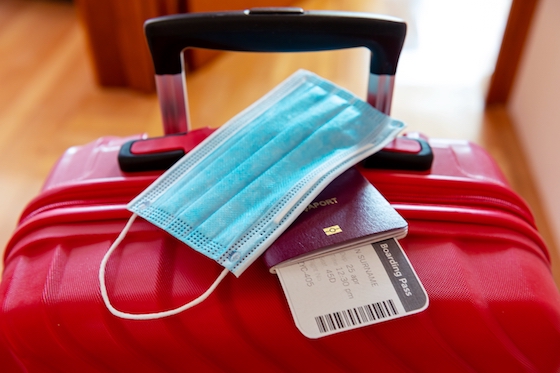Dealing with anti-mask guests? Here’s a 5-step action plan
As an increasing number of businesses require guests to wear face coverings, there has been an increase in the number of well-publicized reports of customers reacting in a belligerent or even violent manner.
What should your hotel do to minimize the chances of an incident occurring at your property, and what should you do if an anti-mask guest disrupts your business? Here is a five-step plan to address this unfortunate part of our new reality.

Andria Lure Ryan is an Atlanta partner at Fisher Phillips, serving as co-chair of the firm’s Hospitality Industry Practice Group.
Step 1: Understand that you are permitted to require employees and guests to wear masks
While many jurisdictions already require businesses have their employees and customers wear masks, you may be wondering whether you can require masks if your jurisdiction does not have a mandate. The answer is simple: As a private business, you can decide whether you allow guests onto your property if they are not wearing a mask.
Step 2: Be proactive
Provide notice to guests of your mask requirement prior to their arrival. Consider a message confirming the reservation and highlighting your policies to keep guests and staff safe. Post notices on your website, apps and social media platforms to notify guests of your policy.
Post conspicuous notices at your entrance, with a statement that you will refuse entry to anyone not complying with the requirement. Many jurisdictions require such signage.
Train your front desk staff, valet attendants and bell staff to remind guests of your requirements upon their arrival. Offer masks to your guests when they enter. Have guests sign an acknowledgment of the policy and an agreement to comply. Be specific about consequences – tell guests that they will be asked to put a mask on and asked to leave the property if they refuse to comply.
Step 3: Train your staff
Your staff will enforce your requirement for masks effectively if they understand it. Train your employees on all your health and safety measures and the reasons you are implementing them. Emphasize that these measures are for their protection and the protection of your guests.
Educate employees about country/state/local government requirements. In the same manner you train your employees to handle guest complaints, train your employees on enforcing your mask policy. Consider something like “Our policy is to require guests to wear a mask when in our public spaces. Can I provide one to you?” If the guest refuses, communicate a clear procedure to your employees for how to address this unfortunate situation.
Step 4: Reasonably accommodate guests with medical conditions
Guests may refuse to wear a mask because they have a health condition, but it is unlikely your guest is carrying medical documentation. Some state orders prohibit you from requiring medical documentation when an exemption is claimed. It is best not to require documentation from a guest to support their request.
Even if you have a policy or are subject to a country/state/local requirement on masks, you may also have an obligation to accommodate the guest. Instead of engaging with the guest about whether they are exempt, consider whether you can offer an accommodation that would allow them to access your property. Some examples include a commitment from the guest not to linger in public spaces and enter restaurants, facilitate alternatives for dining options and consider requiring guests to wear a clear face shield.
Accommodation decisions are highly fact-specific situations that need to consider the medical condition of the guest and state or local laws. You should coordinate with legal counsel for recommendations.
What if a guest presents information that masks are unsafe or not effective? Social or political objections do not allow guests to refuse to wear masks. Rather than engage in confrontations, remind guests of your policy and deny access if they will not comply.
Step 5: Deal delicately with guests who refuse to comply
If you’ve taken the steps above and you still have a guest who refuses to comply, what do you do? A clear policy and training is key. Share the exact phrase you want your employees to use when dealing with an anti-mask guest, such as “If you will not wear the mask per our policy, I’ve been instructed to contact my manager, who will need to discuss this with you.”
If your employee is unable to coax your guests to comply, a designated manager should handle the removal of a guest. Do not expect a non-management employee to handle removal of a non-compliant guest.
Give your manager guidance on what to do if a guest becomes belligerent. The first step in such an unfortunate situation is for the manager to meet the guest in private, share your policy, any government ordinance and any acknowledgment the guest signed, and inform the guest that they will be required to leave if they refuse to comply.
If the guest does not cooperate, your manager should arrange for the individual to check out of the hotel, inform them that they are welcome to return if they comply with the policy or when the need for a mask is gone. Where applicable, your manager should offer to arrange for a proper refund.
The manager should always avoid raising their voice and refrain from physical contact. If the situation escalates, involve security or local authorities in the same manner you handle a trespassing situation. Your manager should immediately document the incident in objective, non-emotional terms and provide the documentation to key personnel (human resources, legal, etc.). Retain the report in the event you are required to later demonstrate what happened.
